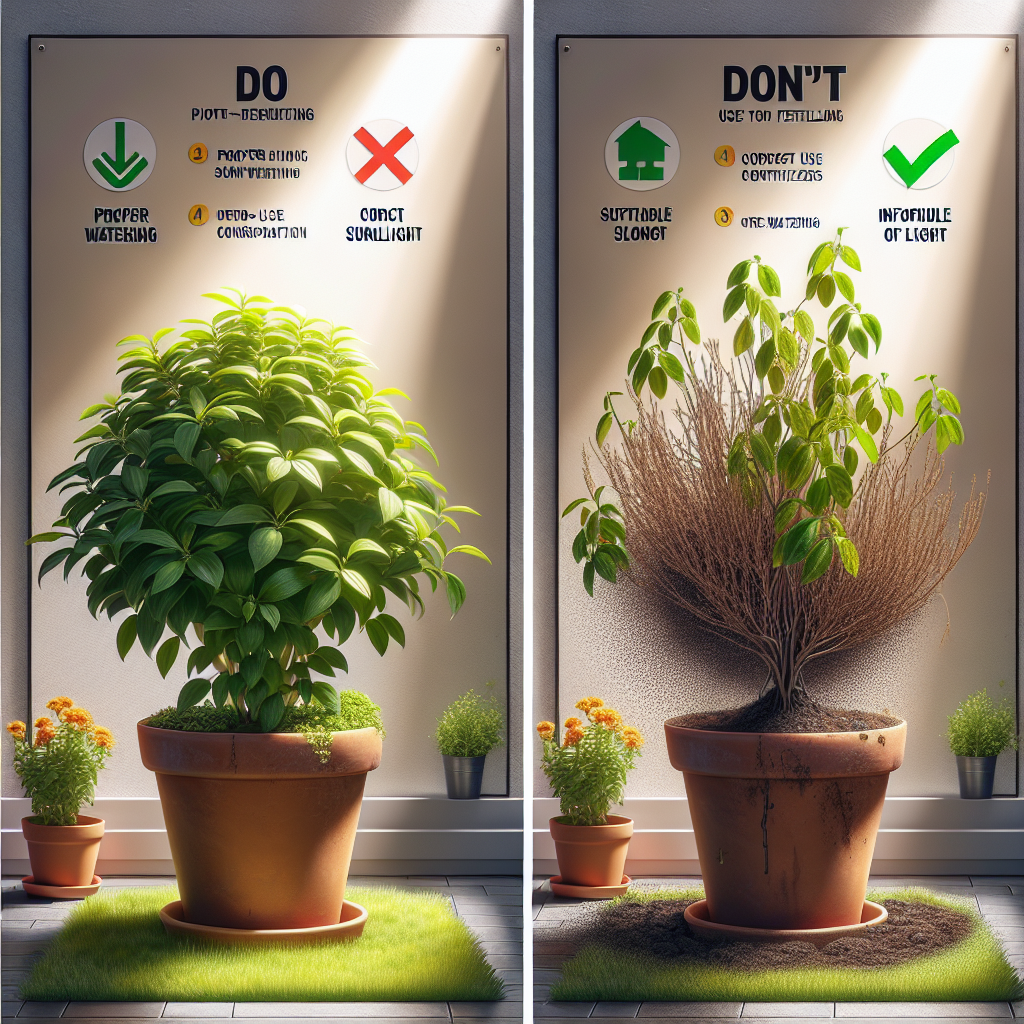Container plants can bring life and vibrancy to any space, whether it be a small apartment balcony or a sprawling outdoor patio. However, in order for these plants to thrive and flourish, they require proper care and maintenance. One crucial aspect of caring for container plants is fertilizing them. Fertilizing container plants can be a bit tricky, as too much or too little fertilizer can have negative effects on the plant’s health. In this article, we will explore the do’s and don’ts of fertilizing container plants to help you keep your green companions happy and healthy.
When it comes to fertilizing container plants, there are certain guidelines that should be followed to ensure optimal growth and vitality. Over-fertilization can lead to nutrient imbalances, root burn, and even plant death, while under-fertilization can result in stunted growth and poor flowering. By understanding the do’s and don’ts of fertilizing container plants, you can provide your plants with the nutrients they need to thrive.
**Do: Choose the Right Fertilizer**
When selecting a fertilizer for your container plants, it is important to choose one that is specifically formulated for use in containers. These fertilizers are typically balanced with essential nutrients such as nitrogen, phosphorus, and potassium, which are essential for healthy plant growth. Look for a slow-release fertilizer that will provide a steady supply of nutrients over time, reducing the risk of over-fertilization.
**Don’t: Over-Fertilize**
One of the most common mistakes gardeners make when fertilizing container plants is overdoing it. It can be tempting to give your plants an extra boost of nutrients in the hopes of encouraging faster growth or more blooms, but too much fertilizer can actually harm your plants. Excessive amounts of fertilizer can cause nutrient imbalances in the soil, leading to toxicity and nutrient deficiencies.
**Do: Follow Fertilizer Instructions**
Before applying any fertilizer to your container plants, make sure to carefully read and follow the instructions on the packaging. Different fertilizers have varying concentrations and application rates, so it is important to use them as directed. Over-applying fertilizer can lead to nutrient buildup in the soil, which can be harmful to your plants.
**Don’t: Fertilize Dry Plants**
Fertilizing dry container plants is a big no-no. When soil is dry, it cannot properly absorb nutrients from fertilizer solutions. Before fertilizing your container plants, always make sure that the soil is moist but not waterlogged. Water your plants thoroughly a day or two before applying fertilizer to ensure that they are hydrated and ready to take up nutrients.
**Do: Fertilize Regularly**
Regular fertilization is key to keeping your container plants healthy and thriving. Most slow-release fertilizers only need to be applied every 4-6 weeks during the growing season. However, some fast-release fertilizers may need more frequent applications. Pay attention to how your plants are responding to the fertilizer you are using and adjust your feeding schedule accordingly.
**Don’t: Use Lawn Fertilizer**
Lawn fertilizers are formulated specifically for use on grassy areas and are not suitable for use on potted plants. They often contain high levels of nitrogen which can burn roots if applied in excess. Always use a fertilizer that is designed specifically for containers or houseplants when feeding your potted greenery.
**Do: Monitor Plant Growth**
Regularly monitoring the growth of your container plants can help you determine if they need additional nutrients or if they are being over-fertilized. If you notice slow growth or yellowing leaves, it may be a sign that your plant needs more fertilizer. On the other hand, if you see signs of burned tips or wilting foliage, cut back on fertilizer applications.
**FAQs
Q: How often should I fertilize my container plants?
A: Most slow-release fertilizers only need to be applied every 4-6 weeks during the growing season.
Q: Can I use homemade compost as a fertilizer for my container plants?
A: Homemade compost can be an excellent source of nutrients for container plants but should be used sparingly as it may contain high levels of certain nutrients that could harm your plant if overused.
Q: Can I use liquid fertilizer on my container plants?
A: Liquid fertilizers are suitable for use on most container plants but should be diluted according to package instructions before application.
In conclusion,** caring for container garden requires attention not just watering but also careful attention when it comes time feed them with right amount nutrition supplement like NPK ratio feed above while avoiding pitfalls like using lawn grass feed instead opting specially designed potted plant feeds suitable care regime water level about day two over example showing signs too less deficiency overall health increase their aesthetic appeal give joy their owner better understanding kind these dear friends love place albeit small corner urban oasis thrive who knows might become next place Instagrammable envy all neighbors admire strive achieve level cultivation follow suggestions outlined above reap rewards bountiful blooms lush foliage vibrant colors delight senses months come Happy gardening!














